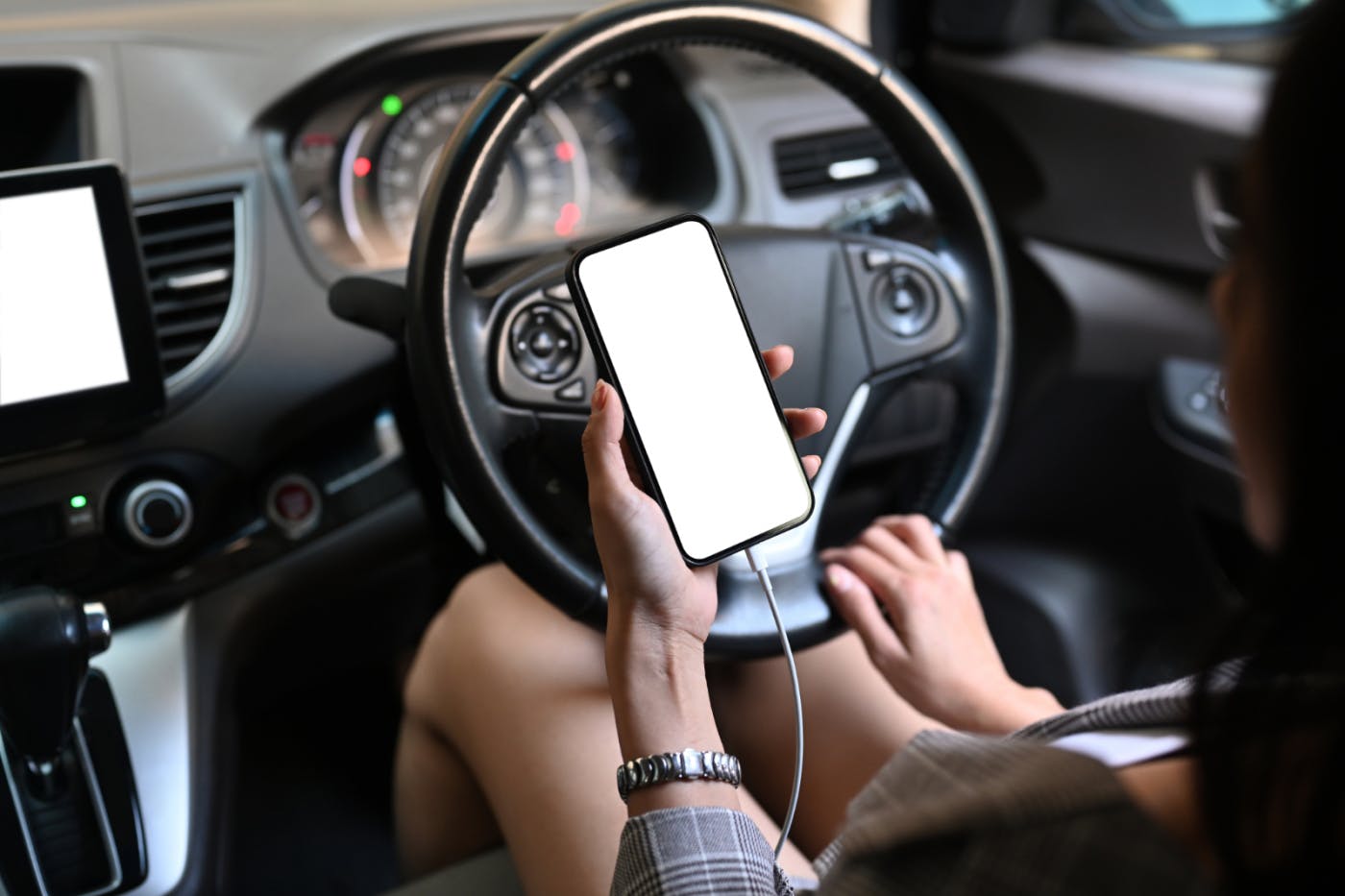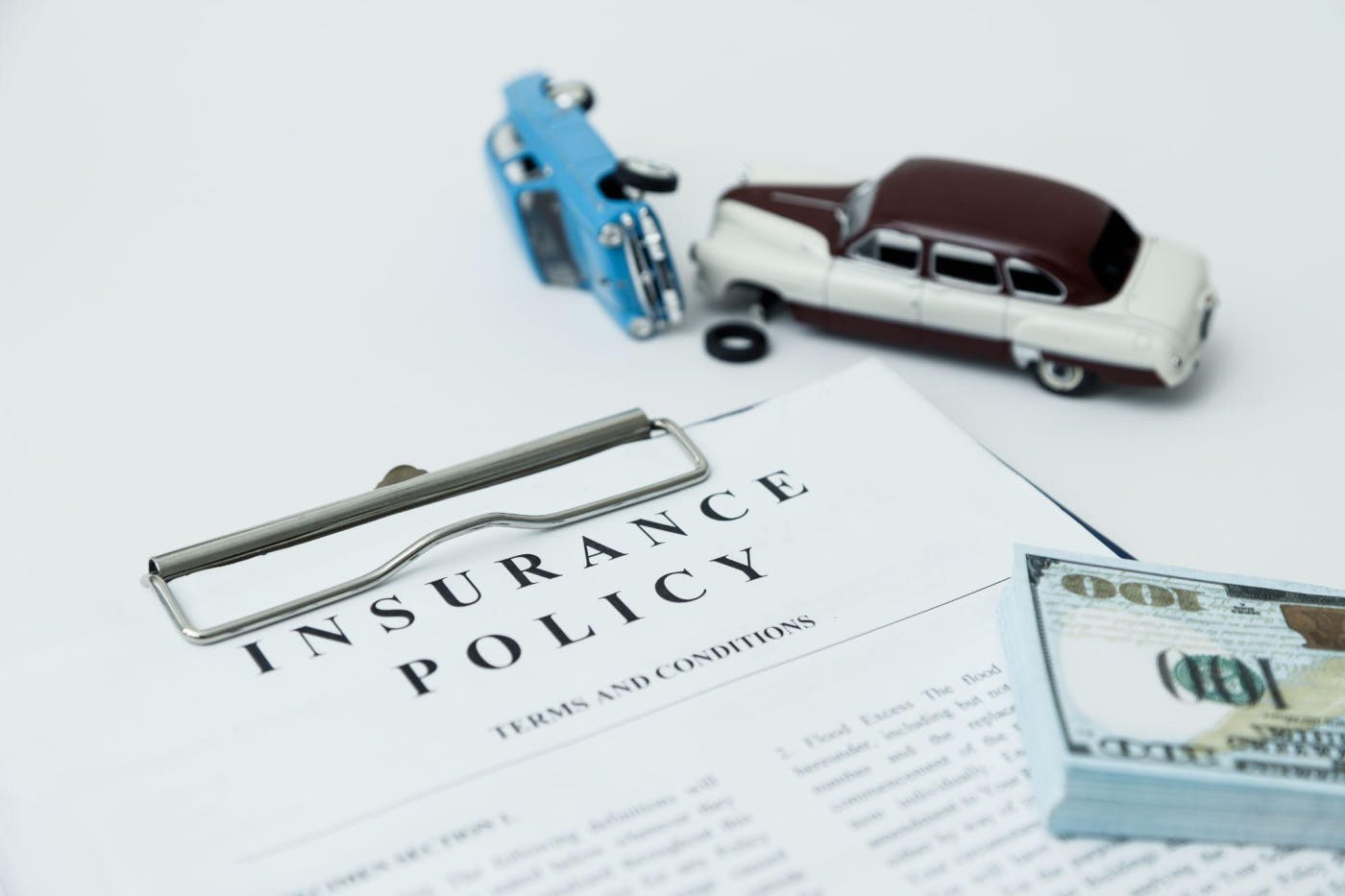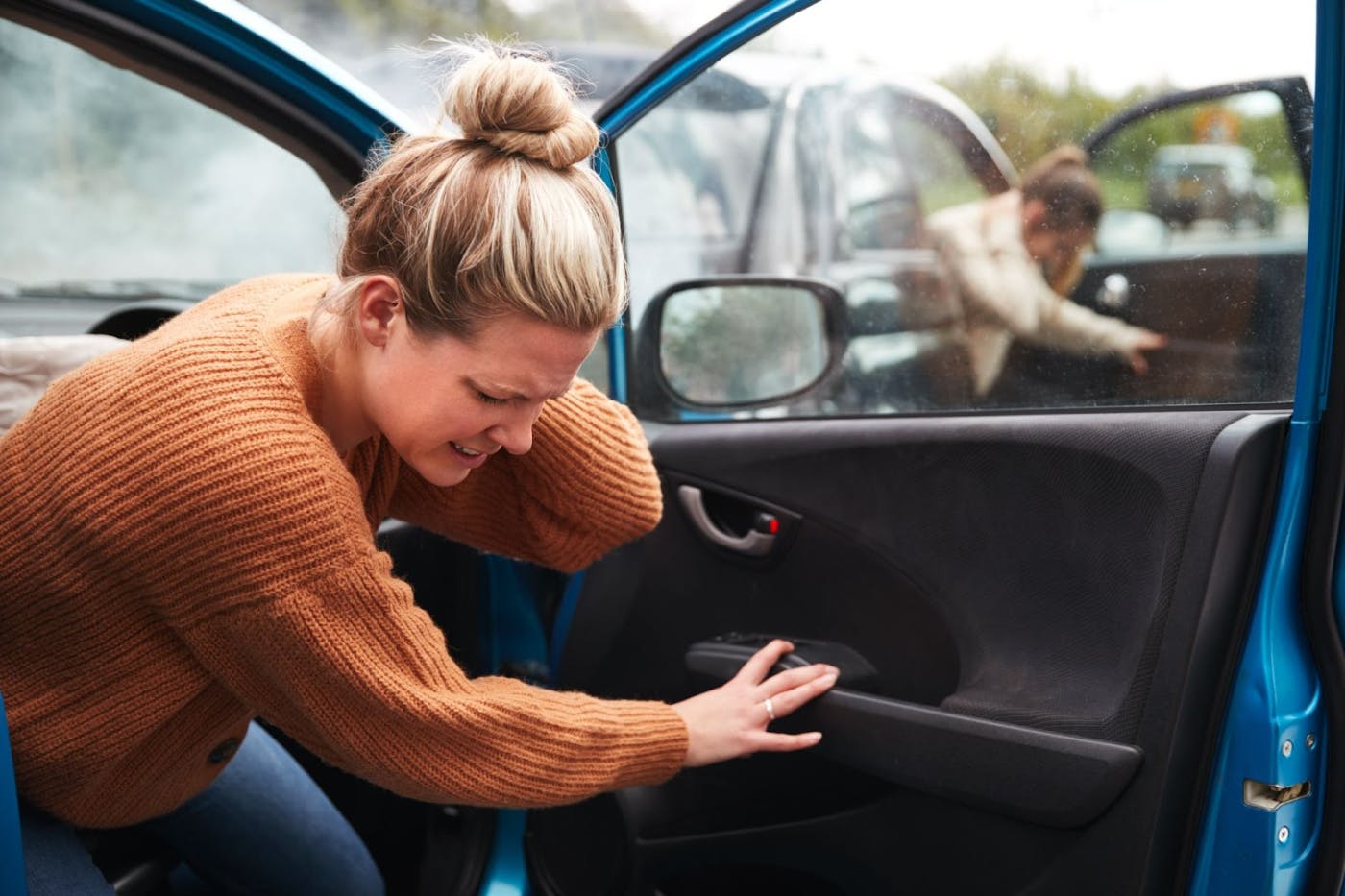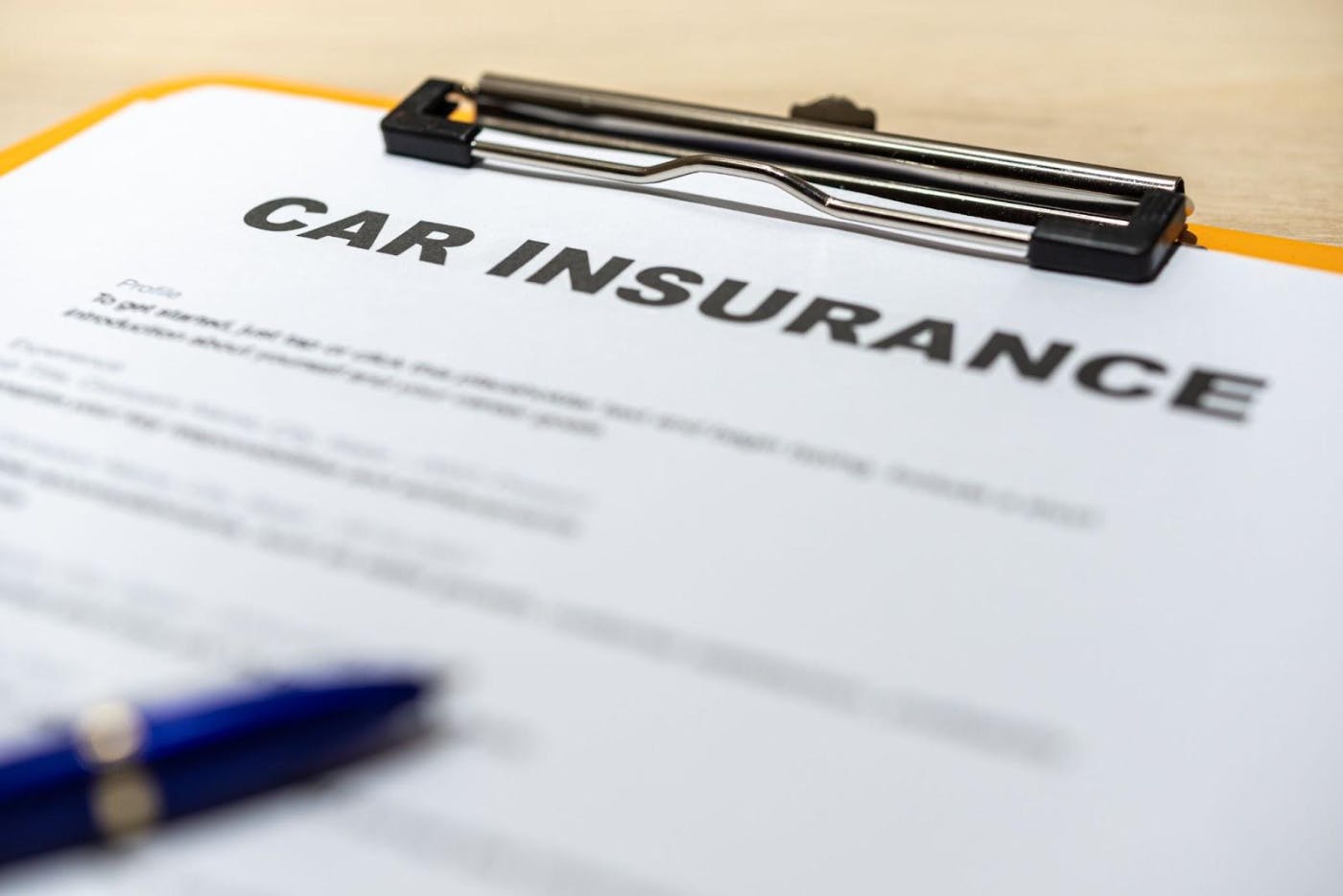How to Talk to Your Teen About Distracted Driving

Distracted driving has become a significant problem in the age of smartphones, TikTok, and Spotify. This fact is especially true for teenagers. As a parent, it's crucial to talk to your teen about the risks of distracted driving and encourage responsible habits. And we’re here to help you have this critical conversation.
Understanding Distracted Driving
Distracted driving goes beyond texting or making calls. It includes any activity that diverts attention from driving – eating, changing playlists, or bantering with passengers. Teens who are still mastering their driving skills are especially at risk for distracted driving accidents. For example:
- The National Highway Traffic Safety Administration (NHTSA) reported that drivers under 20 have the highest proportion of distraction-related crashes.
- In 2019, 39% of high school students reported texting while driving within the past month.
- A study by Liberty Mutual Insurance and Students Against Destructive Decisions (SADD) found that 68% of teen drivers admit to using mobile apps while driving.
Setting the Right Tone for the Conversation
When the time comes to talk, approach the subject non-confrontationally. This discussion isn’t about lecturing or picking a fight. It's about educating and building mutual trust and understanding.
Create a relaxed environment where your teen feels comfortable discussing their views and experiences. Start the conversation with the mindset that your goal is to help, not hassle them.
Key Points to Address
Risks of Distracted Driving
When discussing distracted driving with your teen, share real stories and data about accidents caused by distracted driving. Discuss how a moment's distraction can have life-altering consequences.
Distraction dramatically increases the likelihood of an accident, which can lead to severe injuries and medical expenses. Minnesota law prohibits anyone under 18 with a driver’s permit or a provisional license from making or answering calls on a cell phone, handheld or hands-free.
Explain how causing an accident can lead to severe guilt and anxiety – especially if others are harmed. Then, discuss the potential long-term effects on their insurance rates and driving record. The goal is to emphasize that distracted driving carries serious and lasting consequences that could permanently change their lives or the lives of others.
Common Distractions for Teen Drivers

Make your teen aware of common distractions that could put them in danger while driving, such as:
- Texting or talking on the phone
- Talking to passengers
- Adjusting the entertainment system
- Eating and drinking
- Fixing hair or applying makeup
- Daydreaming
By reviewing this list with your teen, you can help them recognize and avoid these common pitfalls.
Peer Pressure
Teens often face social pressure. Their friends may push them to make poor decisions – such as driving distracted. Give your teen strategies to handle such situations. Encourage them to be assertive and refuse to succumb to peer pressure, especially when it compromises their safety.
Discuss possible scenarios and role-play responses, emphasizing that true friends will respect their choices. Remind them that setting a good example could influence their friends to make better driving decisions.
Family Rules and Expectations
Develop clear family rules regarding distracted driving. Involve your teen in creating these rules to ensure they feel part of the process. Discuss the consequences of breaking these rules, ensuring they are reasonable and enforceable.
Rules for your teen might include:
- Always putting phones on “Do Not Disturb” while driving
- Scheduled hours for when they are allowed to drive – i.e., a curfew
- Not driving with other teens unless an adult is present (Minnesota law mandates this in some cases)
Most importantly: Role model safe driving for your teen by putting your phone down and avoiding distractions whenever you are behind the wheel!
Ongoing Conversations
Invite your teen to share their questions and concerns with you. Open the floor to a two-way chat. Then, encourage an ongoing conversation. Distracted driving isn’t a one-time discussion. Keep the lines of communication open and revisit the topic regularly. That way, you can reinforce safe driving habits and keep your teen mindful of their responsibilities.
Much of the advice we cover here is courtesy of End Distracted Driving, a group that provides outstanding resources and lesson plans for parents and teachers. End Distracted Driving was founded by a father who lost his 21-year-old daughter to a distracted driver. It’s all free and downloadable here.
Give Your Teen the Gift of Safe Driving Habits

Conversations about distracted driving are key to making your teen a responsible driver. While this topic requires patience and persistence, it’s an investment in your teen's safety and responsibility on the road. Your guidance as a parent is invaluable in shaping safe driving habits.
Of course, no matter how careful you are, accidents still happen. If you or a loved one are injured in an accident, you may be entitled to compensation – and we can help you get it.
SiebenCarey is the ONLY Minnesota law firm with a 70-year legacy of helping injury victims get the financial support they need. When you work with us, you’ll get the full benefit of:
- More than 70 years of professional experience
- A proven record of award-winning success
- Demonstrated expertise in settlement negotiations and trials
- Extensive legal resources
- A dedicated team of attorneys, paralegals, and investigators
- The "Know Your Rights" commitment to attentiveness and open communication
- Genuine care and support
Plus, our services are provided on a contingency fee basis. That means you won’t owe us a dime unless we win your case.












